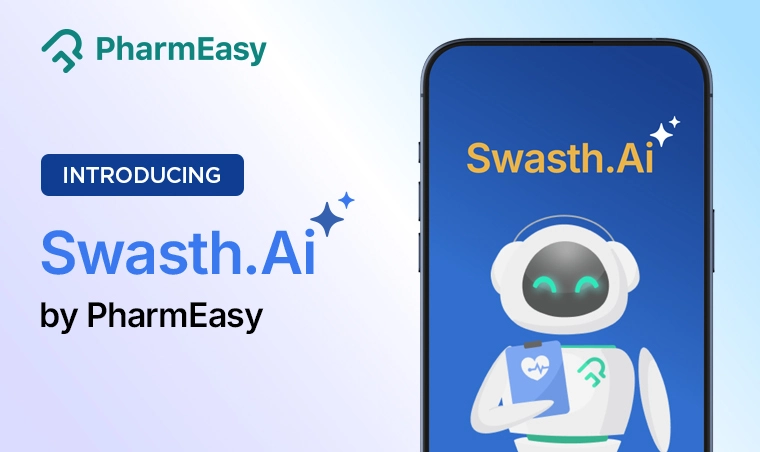Diligo 40mg Tablets
Description
Diligo Tablet is a prescription medicine. The uses of Diligo tablets are to lower symptoms of depression, urinary incontinence, and neuropathic (nerve) pain due to diabetes. Duloxetine is the main co
mponent. It is an antidepressant. The mode of action of the Diligo tablet is to raise the levels of specific chemical messengers, which manage the mood and lower the pain due to nerve damage. Treating the symptoms of depression, especially in people who are not responding to other medicines, is one of the uses of the Diligo tablet. It lowers pain due to nerve damage in patients with many conditions. It also decreases nervousness, stress, fear, irritability, loss of interest, etc. It is not recommended for children younger than 18. You should take Diligo tablet exactly as advised by a doctor, as it induces sleeplessness, constipation, low sex desire, etc. Most of the side effects of Diligo tablets do not need medical therapy but talk to your doctor if they persist. This tablet should also be used with caution, as it tends to cause mood fluctuations and suicidal thoughts.
Product Summary
| Offer Price | ₹60.04 |
| You Save | ₹18.96 (24% on MRP) |
| Contains | |
| Uses | Anxiety disorder, nerve pain, stress urinary incontinence, major depressive disorder. |
| Side effects | Drowsiness, nausea, dizziness, constipation, loss of appetites, dry mouth, increased sweating, insomnia, low blood pressure, blurred vision, changes in sexual drive. |
| Therapy | ANTI-DEPRESSANT |
Uses of Diligo 40mg Tablets
- According to CDSCO and USFDA, Diligo can be used for the following conditions:
- Symptoms of major depressive disorders in only adults.
- Moderate to severe stress urinary incontinence in women.
- Symptoms of Generalized Anxiety Disorder (GAD).
- Diabetic Peripheral Neuropathic Pain (pain in diabetic patients because of nerve damage),
- Fibromyalgia (muscular pain),
- Chronic Musculoskeletal Pain.
Contraindications of Diligo 40mg Tablets
- If you’re known to have allergic reactions to any ingredient of the Diligo tablet.
- If you are diagnosed with uncontrolled or fluctuating high blood pressure.
- If you have an eye condition such as narrow-angle glaucoma.
- If you notice sudden mood changes, self-harming or suicidal thoughts.
- If you are already using other antidepressants.
- If you have a severe kidney illness.
- If you have a history of a bleeding disorder or abnormal bleeding.
- If you are using medicines that increase serotonin levels.
- If you have a condition known as neuroleptic malignant syndrome (a severe disorder caused by a reaction to medicines).
Side effects of Diligo 40mg Tablets
- Nausea,
- Difficulty in sleeping,
- Excessive sweating,
- Blurred vision,
- Burning sensation on soles and palms,
- Sexual problems such as erectile dysfunction, low sex desire, etc.
- Suicidal thoughts.
Precautions and Warnings of Diligo 40mg Tablets
Pregnancy
Breast Feeding
Driving
Alcohol
Other General Warnings
- You are using any ayurvedic or herbal medicines that can interfere with this medicine and cause adverse effects.
- You have any seizure disorder.
- You have withdrawal effects such as nausea, vomiting, irritation, etc.
- You are unable to pass urine.
- You experience a change or drop in blood sugar levels with Diligo medicine.
- You are over 65.
- You notice a frequent fluctuation in blood pressure. Diligo medicine can cause low pressure when you suddenly stand up (orthostatic hypotension).
Mode of Action of Diligo 40mg Tablets
How Does It Work?
Directions for Use of Diligo 40mg Tablets
- Take Diligo tablets precisely in the dosage and duration prescribed by the doctor.
- Do not use more than the advised dose, even if you cannot notice the results.
- Do not break the Diligo tablet or chew it and take it as a whole with a glass of water.
- Do not use it with other medicines without consulting your doctor.
- Don’t take this tablet if the package has been already opened.
- It is best if you can take a Diligo tablet after eating food, so it is tolerated well.
Interactions of Diligo 40mg Tablets
Interactions with other medicines
- It is not advised to take antidepressant medications such as diazepam, linezolid, fluoxetine, etc., with Diligo tablets without consulting your doctor. It can cause adverse reactions such as high heart rate and changes in blood pressure....
- Inform your doctor if you are on blood thinners like aspirin, warfarin, etc. Using them with a Diligo tablet can increase the risk of abnormal bleeding.
- Diligo tablets can interact with many other medications such as sertraline, lithium, and dextromethorphan. They can cause severe side effects such as dizziness, drowsiness, etc.
- Do not take high doses of opioid pain relievers like tramadol or codeine with Diligo medicine without confirming with your doctor; it can cause extreme drowsiness and other side effects.
- Do not mix antibiotics such as ciprofloxacin with Diligo tablets; it increases the level of Diligo in the body and can cause serious side effects.
Interactions with food items
- Some brain-stimulating drinks, including coffee, energy drinks, cola etc., interact with the effects of Diligo medicine. Avoid grapefruit and its juice, as it lowers the effects of the medicine.
Storage and disposal of Diligo 40mg Tablets
Dosage of Diligo 40mg Tablets
Overdose
Missed a Dose
Content Details
Dr. Varsha Parihar
MBBS, MD (Community Medicine)
Frequently Asked Questions (FAQs)
Q: Can I give Diligo tablets to children below 18 years of age?
Q: Would I be addicted to Diligo medicine if I took it every day?
Q: Should I take Diligo tablets with food or without consuming food?
References
- Goldstein DJ. Duloxetine in the treatment of major depressive disorder [Internet]. Neuropsychiatric Disease and Treatment 3(2). 2007 [cited 2022 Mar 19] - Available
- Cymbalta (duloxetine hydrochloride) delayed-release capsules for oral use. Initial U.S. Approval: 2004. Accessdata.fda.gov. [cited 2022 Mar 19] - Available from
- Duloxetine for Chronic Depression: a Double-blind Study - Full Text View [Internet]. ClinicalTrials.gov. [cited 2022 Mar 19] - Available from:
- Pitchot W, Scantamburlo G, Ansseau, M. Duloxetine in major depressed patients resistant to SSRIs and/or venlafaxine [Internet]. Psychiatria Danubina. 1:S106-7. 2010. [cited 2022 Mar 19] - Available from
- Fakoya AOJ, Omenyi P, Anthony P, Anthony F, Etti P, Otohinoyi DA, et al. Stevens - Johnson Syndrome and toxic epidermal necrolysis; extensive review of reports of drug-induced etiologies, and possible therapeutic modalities [Internet]. Macedonian Journal of Medical Sciences 6(4). 2018 [cited 2022 Mar 19] - Available from:
Did you find this medicine information helpful?
Please rate your experience
Health Articles
Top-Tests we cover:
Top-Selling Healthcare Products:
Top-Selling Medicines:
Top-Searched Medicines:







